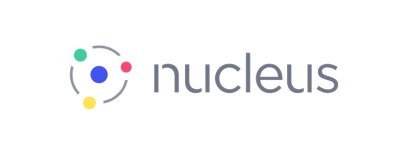Transform Virtual Education with the Nucleus Approach
Virtual learning needs more than just online classes—it needs a digital brain that turns information into lasting knowledge. The Nucleus Approach provides the framework for building learning environments that consistently create transformative educational experiences.
Why Virtual Learning Needs a Digital Brain
Traditional virtual learning challenges:
- Knowledge retention is inconsistent
- Student engagement fluctuates
- Progress tracking becomes scattered
- Discussion depth is limited
- Learning continuity breaks down
The Nucleus Approach solves these challenges by creating a central nervous system for your learning environment.
Core Components of a Learning Digital Brain
1. Knowledge Architecture
Transform how learning happens:
- Structure course content systematically
- Connect concepts across sessions
- Build progressive learning paths
- Create implementation exercises
- Track comprehension levels
2. Engagement Systems
Turn lessons into lasting knowledge:
- Track student participation
- Monitor understanding
- Set clear milestones
- Create accountability
- Measure outcomes
3. Discussion Framework
Maintain active learning between sessions:
- Centralize class discussions
- Share resources effectively
- Enable peer learning
- Document insights
- Follow up systematically
4. Learning Measurement
Demonstrate educational impact:
- Track knowledge acquisition
- Monitor skill development
- Document success stories
- Calculate learning ROI
- Show student progress
Implementation Framework
Phase 1: Foundation
- Design learning paths
- Establish protocols
- Set up systems
- Launch tracking
- Initialize engagement
Phase 2: Activation
- Monitor participation
- Gather feedback
- Adjust methods
- Enhance learning
- Scale impact
Phase 3: Evolution
- Deepen understanding
- Expand capabilities
- Increase mastery
- Measure growth
- Multiply success
Success Factors
1. Clear Structure
- Defined learning formats
- Engagement protocols
- Knowledge assessment
- Progress tracking
- Regular review
2. Active Participation
- Consistent engagement
- Regular contribution
- Peer support
- Applied learning
- Ongoing discussion
3. Measured Progress
- Knowledge assessment
- Skill evaluation
- Success documentation
- Impact measurement
- Value demonstration
Learning Best Practices
Session Management
- Structured lessons
- Interactive elements
- Clear objectives
- Practice opportunities
- Progress checks
Knowledge Integration
- Concept connection
- Practical application
- Resource access
- Discussion forums
- Project work
Progress Tracking
- Regular assessment
- Skill verification
- Project completion
- Participation metrics
- Outcome measurement
Common Challenges & Solutions
Challenge 1: Maintaining Engagement
Solution: Interactive system with:
- Regular checkpoints
- Group activities
- Discussion prompts
- Project work
- Success celebration
Challenge 2: Knowledge Retention
Solution: Integrated system for:
- Concept review
- Practice exercises
- Resource access
- Discussion threads
- Application projects
Challenge 3: Progress Monitoring
Solution: Comprehensive tracking through:
- Assessment tools
- Progress dashboards
- Completion rates
- Success metrics
- Impact measurement
Learning Applications
1. Professional Development
- Skill building
- Certification programs
- Career advancement
- Industry knowledge
- Best practices
2. Academic Courses
- Subject mastery
- Research skills
- Critical thinking
- Collaborative learning
- Project work
3. Corporate Training
- Employee development
- Compliance training
- Leadership programs
- Skill enhancement
- Team capabilities
4. Specialized Education
- Technical training
- Creative development
- Professional certification
- Expertise building
- Specialty skills
Taking Action
Ready to transform your virtual learning environment with the Nucleus Approach?
Learn how to:
- Structure learning for success
- Implement effective systems
- Track meaningful progress
- Create lasting knowledge
- Scale your impact
Don’t let another learning opportunity get lost. Start building your educational digital brain today.
Additional Resources
For Educators
- Curriculum templates
- Engagement tools
- Assessment frameworks
- Progress tracking
- Success metrics
For Students
- Learning guides
- Study tools
- Progress trackers
- Project templates
- Success measures
For Organizations
- ROI calculators
- Learning metrics
- Integration guides
- Value assessment
- Impact measurement
Special Features for Virtual Learning
1. Interactive Tools
- Live discussions
- Group projects
- Peer review
- Virtual workshops
- Collaborative exercises
2. Assessment Systems
- Knowledge checks
- Skill evaluation
- Progress tracking
- Performance metrics
- Outcome measurement
3. Resource Management
- Content libraries
- Study materials
- Reference guides
- Practice exercises
- Project resources
4. Collaboration Tools
- Group work
- Peer learning
- Team projects
- Discussion forums
- Shared resources
This guide reflects current best practices in virtual learning using the Nucleus Approach methodology.
